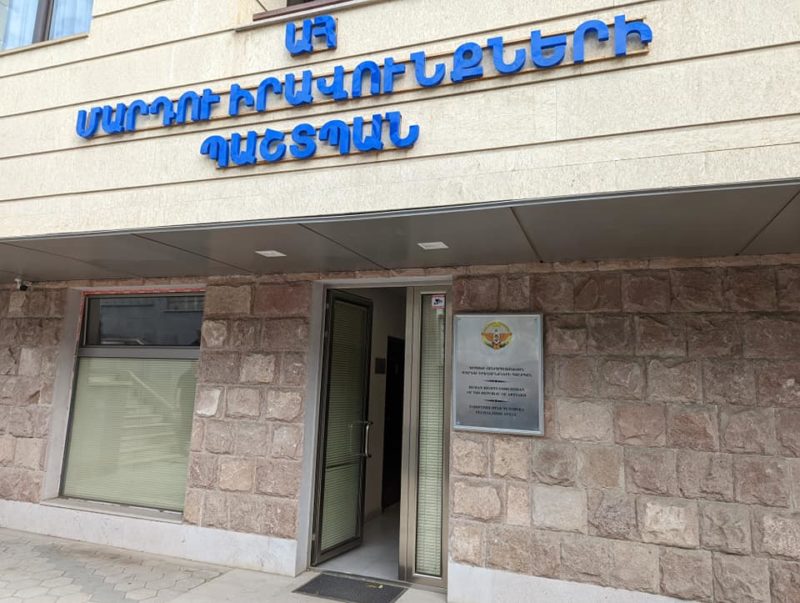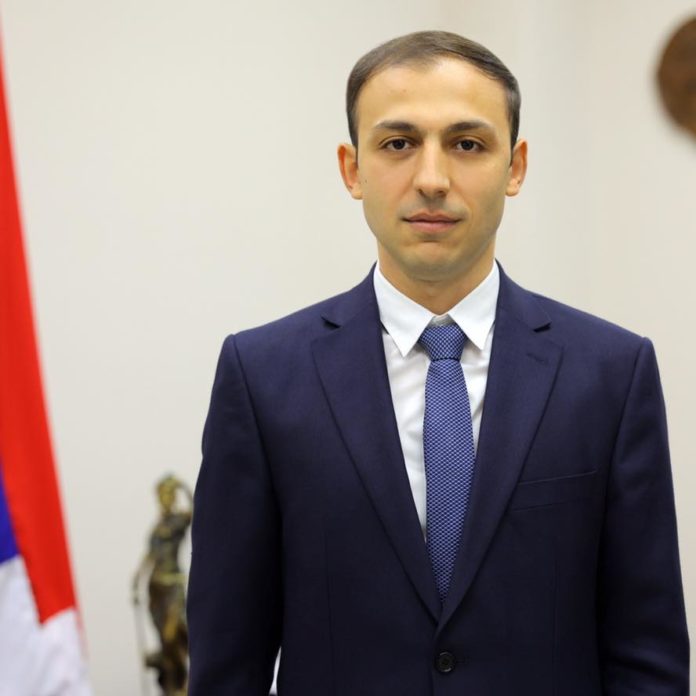WATERTOWN — The mandate of Gegham Stepanyan, Human Rights Ombudsman of the Republic of Artsakh, and his staff, should primarily be to defend human rights in Artsakh against the unlawful actions of Artsakh’s state institutions and individual office holders. However, living through a period of conflict, Stepanyan explained during an August 8 interview that around half of their time is used to deal with Azerbaijan’s violations of the rights of Artsakh’s inhabitants. Stepanyan prepares reports, participates in conferences and works to assure awareness of these violations. His staff, like Stepanyan’s time, is divided basically into two parts, each focusing on one of these two major areas.
The 31-year-old Stepanyan, a native of Stepanakert who went to Armenia for his higher education, has a lot of relevant experience for his current job. He worked as assistant to the president of the Artsakh parliament from 2016 to 2020, and from September 2020 through March 2021 served as the chief of staff of the Ombudsman’s office in Artsakh before being elected as ombudsman himself by the National Assembly of Artsakh on March 25, 2021. He witnessed the 2020 Artsakh war and its aftermath firsthand.
Stepanyan stated that the primary way he and his staff deal with Azerbaijani violations is by recording objective facts. He noted that as the ombudsman, he is not a member of the government of Artsakh carrying out its policies. He is an independent official obliged to present the truth. “Therefore,” he explained, “we first of all record facts, prepare reports, and work on the preparation of announcements, and send all of our reports and announcements immediately to various bodies and representatives of different organizations. Our main work is providing information and warnings…I think we have been able to do this, at least during the current period. Of course, the responses we have received are not that satisfactory and I think we must work a lot more to attain results. However, we are accumulating experience and we are continually advancing that experience.”

Cooperation with Stepanyan’s counterpart, the Human Rights Defender of the Republic of Armenia, is crucial. Since Artsakh is not internationally recognized as a state, it cannot become a member of various world organizations for the defense of human rights. Sometimes there are problems for the ombudsman to even work with international organizations. Therefore, Stepanyan said that the channels of the ombudsman of Armenia are very important in speaking with the outside world.
“Often, on various issues when it is necessary that Armenia’s ombudsman communicates directly with ambassadors or international human rights organizations, I enter into contact with him and ask him to immediately report what is happening in Artsakh and obtain their help, or at least deliver information in general on the objective reality of the situation,” he said. “In other words, it is by means of Armenia’s Defender of Human Rights that the voice of the people of Artsakh becomes audible.”
This close relationship has existed during the consecutive periods in office of all the ombudsmen of Artsakh (Stepanyan is the fourth). It was particularly important, Stepanyan related, during the April 2016 war and in the fall of 2020. Roughly 20 reports have been prepared by his office concerning the crimes committed by Azerbaijan during the recent war and the violations of various human rights.










